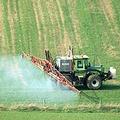 聯合國環境規劃署(United Nations Environment Programme,UNEP) 近日發表一篇研究,顯示世界上過半食物因為人類的不當管理,而蹧蹋浪費掉了。
聯合國環境規劃署(United Nations Environment Programme,UNEP) 近日發表一篇研究,顯示世界上過半食物因為人類的不當管理,而蹧蹋浪費掉了。
這篇報告,首度發表在13日晚間起於肯亞奈洛比舉辦的聯合國UNEP治理理事會及全球環境部長論壇上,會議上環保官員們試圖以綠色經濟的概念來面對全球的環境、金融、食物以及能源問題。
聯合國環境規劃署執行長史坦納(Achim Steiner)表示:「如果更有效的運用糧食,那麼不只養活預估的人口成長數不會是問題,含可兼顧野生動物、鳥類、魚類都能安然生存。」
報告中提到,世界上1/3的穀物被當作牲畜飼料,到了2050年將會增加到1/2,屆時將加重貧窮以及環境剝削問題,但若將廚餘回收作為牲畜飼料以及將草、堅果外殼等廢料轉為生質能利用,則有助於減低沃土以及森林系統壓力。但即使從現在開始這麼做,到2050年時世界25%的糧食仍會因為「環境衰退」而浪費掉。
當然,該報告也警告,人造肥料與殺蟲劑的廣泛使用,以及用水量、伐林的增加,都將嚴重破壞生物多樣性。
目前已有80%瀕臨絕種的生物因為農業擴增而面臨生存危機,歐洲在過去25年來已經損失超過50%的農莊鳥類(farmland bird)。
據UNEP及聯合國貿易及發展會議(United Nations Conference on Trade and Development,UNCTAD)在2008年底公佈針對非洲24個鄉鎮114個小面積農場調查,結果發現使用有機或是附近使用有機耕作的田地產獲增加一倍,東非產獲更高達128%。
顯然有機農法更勝傳統農法以及高度使用化學品的慣行農法作,更能達到環境利益效果例如:增加土壤肥沃度、保水度以及對抗乾旱。
Over half of the food produced globally is lost, wasted or discarded as a result of inefficiency in the human-managed food chain, finds a new study by the United Nations Environment Programme released today.
The UN report was issued at the UNEP Governing Council and Global Ministerial Environment Forum taking place in Nairobi through Friday. The environment ministers are focused on finding solutions to the world's environmental, financial, food and energy crises through the emerging concept of a green economy.
"There is evidence within the report that the world could feed the entire projected population growth alone by becoming more efficient while also ensuring the survival of wild animals, birds and fish on this planet," said UNEP Executive Director Achim Steiner.
The report points out that more than one-third of the world's cereals is being used as animal feed, and that percentage could rise to half by 2050, aggravating poverty and environmental degradation. Instead, the report suggests that recycling food wastes into animal feed and turning wastes such as straw and nutshells into cellulosic biofuels could reduce pressure on fertile lands and forest ecosystems. Yet, even if these steps are taken, up to 25 percent of the world's food production may become lost due to "environmental breakdowns" by 2050, the study finds.
The report warns that increased use of artificial fertilizers, pesticides, increased water use and cutting down of forests will result in a massive decline in biodiversity.
Already, nearly 80 percent of all endangered species are threatened due to agricultural expansion, and Europe has lost over 50 percent of its farmland birds during the last 25 years.
Organic food production is the one bright spot in this grim picture.
A recent report by UNEP and the UN Conference on Trade and Development surveyed 114 small-scale farms in 24 African countries, publishing their findings in late 2008. The survey found that yields had more than doubled where organic or near-organic practices had been used, with the yield jumping to 128 percent in east Africa.
Organic practices outperformed traditional methods and chemical-intensive conventional farming and also provided environmental benefits such as improved soil fertility, better retention of water and resistance to drought.


